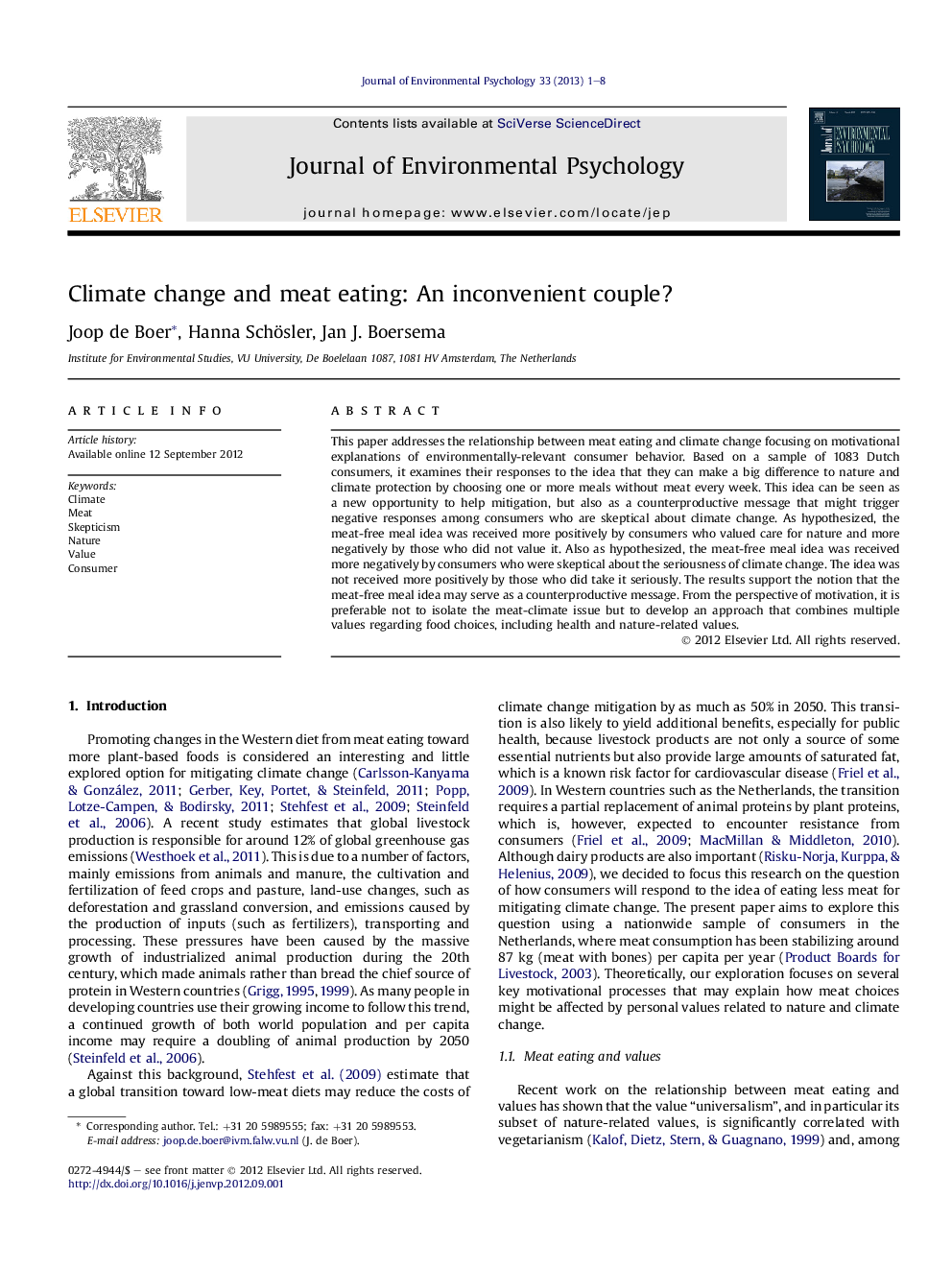| کد مقاله | کد نشریه | سال انتشار | مقاله انگلیسی | نسخه تمام متن |
|---|---|---|---|---|
| 885695 | 1471761 | 2013 | 8 صفحه PDF | دانلود رایگان |

This paper addresses the relationship between meat eating and climate change focusing on motivational explanations of environmentally-relevant consumer behavior. Based on a sample of 1083 Dutch consumers, it examines their responses to the idea that they can make a big difference to nature and climate protection by choosing one or more meals without meat every week. This idea can be seen as a new opportunity to help mitigation, but also as a counterproductive message that might trigger negative responses among consumers who are skeptical about climate change. As hypothesized, the meat-free meal idea was received more positively by consumers who valued care for nature and more negatively by those who did not value it. Also as hypothesized, the meat-free meal idea was received more negatively by consumers who were skeptical about the seriousness of climate change. The idea was not received more positively by those who did take it seriously. The results support the notion that the meat-free meal idea may serve as a counterproductive message. From the perspective of motivation, it is preferable not to isolate the meat-climate issue but to develop an approach that combines multiple values regarding food choices, including health and nature-related values.
► Presents consumers' view on the links between agriculture and climate change.
► Consumers were asked about meat eating, valuing nature and climate change.
► Valuing care for nature was associated with being low on meat consumption.
► Meat-free meal idea provoked resistance among climate change skeptics.
► It might be better to combine the meat-free meal idea with multiple values.
Journal: Journal of Environmental Psychology - Volume 33, March 2013, Pages 1–8